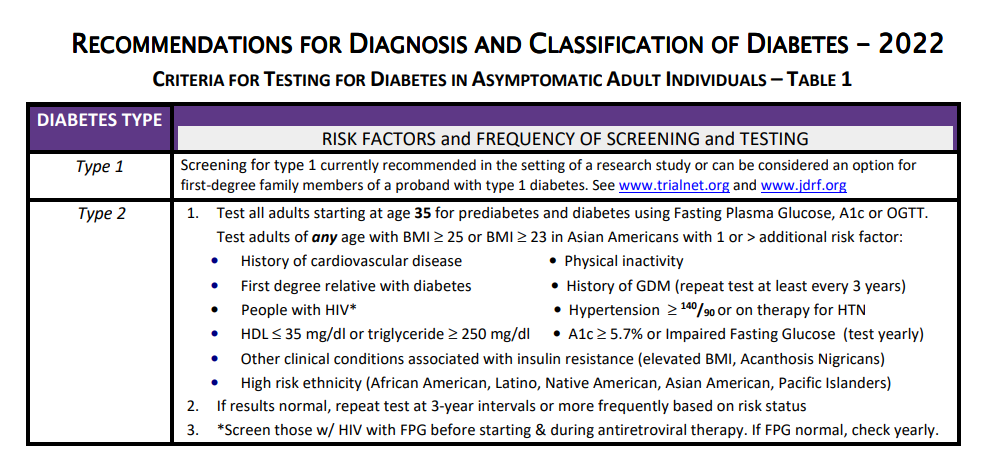The 2022 ADA Standards of Care (SOC), have some exciting new updates that impact our clinical practice. We have updated our cheat sheets for your clinical practice and in preparation for certification exam success.
Screen for diabetes at 35 years
Given the increasing incidence of prediabetes and diabetes in younger populations, the ADA has adjusted their screening threshold. The old guidelines suggest screening everyone starting at age 45.
The new recommendations state that everyone aged 35 or older needs to have their blood glucose level evaluated to find undiagnosed prediabetes or diabetes.
Testing methods for prediabetes or diabetes can include:
- A1c
- Fasting Plasma Glucose (FPG) or
- Oral Glucose Tolerance Test (OGTT)
By testing for elevated glucose levels at this younger age bracket, health care professionals can provide early intervention to slow progression from prediabetes to diabetes and provide immediate care to those with newly discovered diabetes.
Screen if receiving treatment for HIV also added
In addition to lowering the screening age, the ADA suggests evaluating glucose levels for people with HIV who are started on antiretroviral therapy with ongoing glucose screening during therapy. Antiretroviral therapy can damage beta cells leading to hyperglycemia. To prevent complications, early detection and treatment is important for these higher risk individuals.
Screen for anyone with elevated BMI regardless of age
The guidelines still recommend testing adults of any age with BMI of 25 or more or BMI of 23 or more in Asian Americans with one or more additional risk factors. See cheat sheet below for more details.
In addition, all newly pregnant individuals at risk of diabetes (using the same risk criteria as listed below) need glucose testing. However, the ADA suggests universal screening for all individuals early in pregnancy to identify those with undiscovered hyperglycemia or diabetes, so treatment can be initiated to protect fetal and maternal health.

This is an exciting start to 2022. Finding people with elevated blood sugars at a younger age promises to help decrease risk of diabetes complications and improve outcomes along with quality of life.









